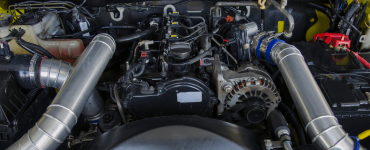Fuel additives and efficiency
Key Takeaways Table
| Key Point | Details |
|---|---|
| Fuel Additives | How additives can enhance fuel efficiency and engine performance. |
| Types of Additives | Overview of different fuel additives and their specific functions. |
| Fuel Efficiency | The role of additives in fuel economy and their impact on long-term vehicle health. |
| Internal Links Strategy | Utilization of internal links to provide comprehensive insights on fuel-related topics. |
Fuel Additives: Boosting Your Vehicle’s Efficiency and Performance
Fuel additives are a pivotal component in maintaining and enhancing the performance of your vehicle’s engine. These chemical compounds are designed to improve the quality and efficiency of fuel by addressing various issues like contamination, corrosion, and the buildup of carbon deposits.

Types and Benefits of Fuel Additives
Additives come in various forms, each targeting specific problems within the fuel system. Some common types include detergents, which clean the fuel injectors and carburetors, stabilizers that preserve the fuel’s integrity during storage, and octane boosters that improve the fuel’s combustion characteristics.
Fuel Efficiency and Additives
Fuel additives play an integral role in the overall fuel economy. By keeping the fuel system clean, they ensure that the engine runs smoothly, reducing fuel consumption and emissions. Furthermore, additives can also enhance engine performance by ensuring that fuel burns more completely and efficiently.
Integrating Additives into Vehicle Maintenance
Incorporating fuel additives into your vehicle’s maintenance routine can result in noticeable improvements in both performance and fuel efficiency. For instance, using a fuel injector cleaner can remove the harmful deposits that lead to inefficient combustion and poor engine performance.
Enhancing Fuel Injection for Efficiency
Improving fuel injection is crucial for maximizing your vehicle’s efficiency. Clean injectors ensure a precise mixture of fuel and air, which is essential for optimal engine function. This is where additives can provide a significant benefit. For in-depth guidance on improving fuel injection, consider exploring improving fuel injection.
The Role of Regular Maintenance
Regular maintenance, including the use of fuel additives, is essential for sustaining your vehicle’s fuel efficiency. Routine checks and balances, such as replacing the fuel filter and using the best fuel injector cleaner, contribute to a more efficient, cleaner-running engine.
Further Insights into Fuel Efficiency
| Aspect | Insight | Link |
|---|---|---|
| Exhaust Systems | How exhaust modifications can lead to better fuel efficiency. | Exhaust Systems |
| Engine Tuning | Tailoring your engine’s settings for optimal fuel usage. | Engine Tuning |
| Fuel Filter Importance | Understanding how a clean fuel filter affects fuel economy. | Fuel Filter |
| Troubleshooting Fuel Gauges | Tips to diagnose and fix fuel gauge issues. | Fuel Gauges |
| Fuel Filter Replacement | Knowing when it’s time to change your fuel filter for efficiency. | Filter Replacement |
| Aerodynamics | How vehicle design influences fuel consumption. | Aerodynamics |
| Driving Habits | Adjusting driving habits for better fuel mileage. | Driving Habits |
| Weight Management | The benefits of reducing vehicle weight on fuel efficiency. | Weight Reduction |
Conclusion
Fuel additives are a key ingredient in the recipe for a high-performing, fuel-efficient vehicle. When used as part of a comprehensive maintenance plan, they can contribute significantly to the longevity and efficiency of your vehicle’s engine. Do you want me to visualize data from this article?




